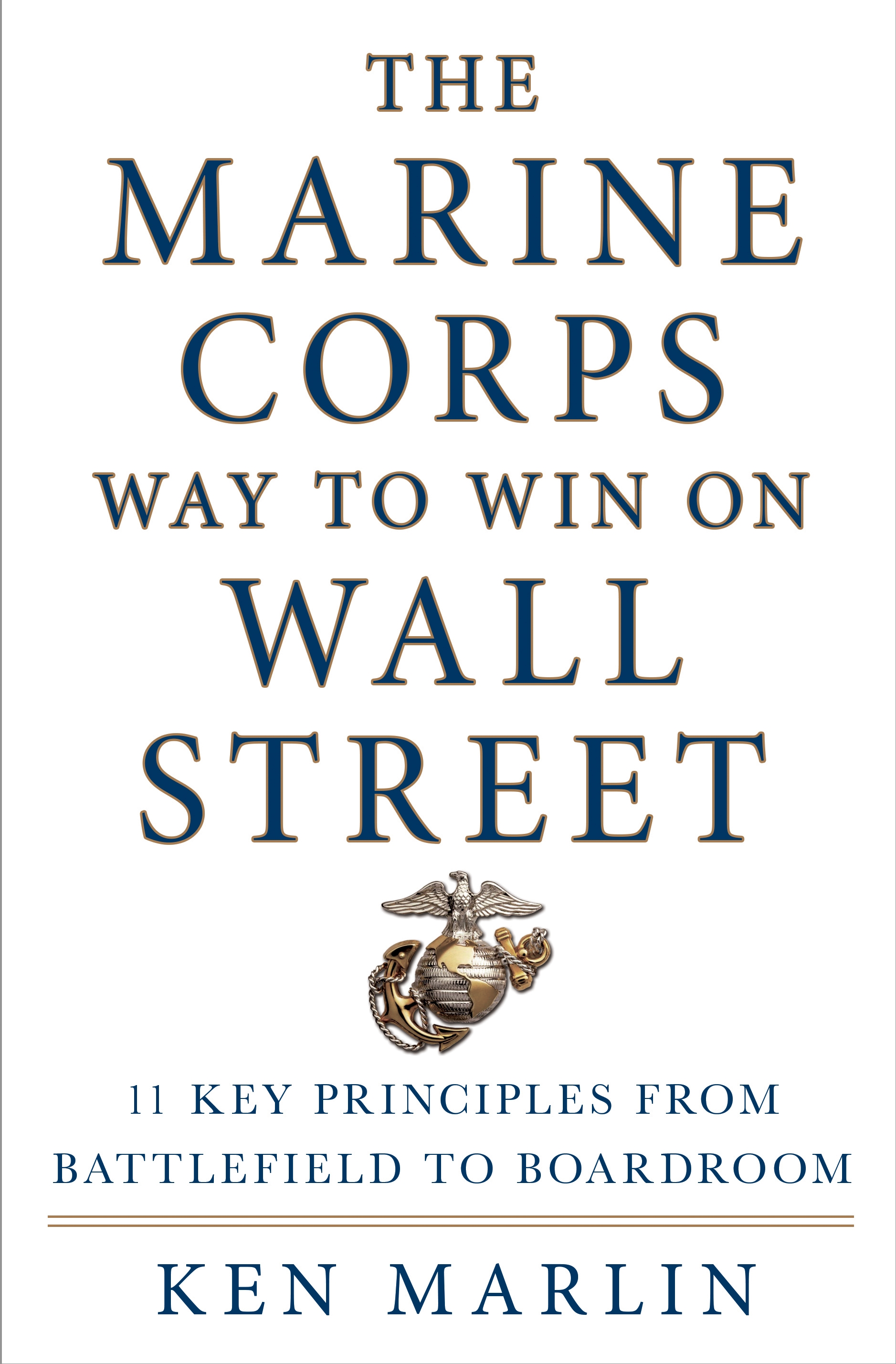
I spent 10 years on active duty as a U.S. Marine, 10 years working for technology firms, and 14 years leading my own investment bank. I am registered as an independent voter, and I’ve voted for people in both major parties for Congress, Senate and Governor. In 30 years, I have never voted for a Democrat for President.
I’ve never been a fan of Secretary Hillary Clinton, but I’m not a supporter of Donald Trump, either. So I decided to make my decision for President based on which candidate best exemplifies the 11 Marine Corps Leadership principles that I hold dear.
1. Take the Long View.
For Marines, winning requires a clear articulation of long-term strategic objectives and the development of a disciplined, well-thought-out, detailed tactics to achieve those objectives. Broad promises such as keeping the world safe for democracy or Making America Great Again are not strategic objectives; they are catch phrases.
Trump has issued position papers on repealing Obamacare, challenging China on trade and affirming the right to bear arms. But his plans to achieve them are light on details. Meanwhile, Clinton has laid out a series of long-term objectives, including reducing income inequality, improving educational opportunities and reforming the tax code—as well as suggested detailed plans to do so.
Winner: Clinton.
2. Take a Stand.
Many managers and politicians seem to work within the realm of what they see as possible—believing that they are constrained by the facts on the ground. Marines see those facts and then look to see if some of those can’t be bent in their direction. They take a stand by motivating their team to accomplish things that others believed impossible.
Trump has taken strong positions on many important issues including building a Wall; deporting undocumented immigrants; confronting China; changing NAFTA and killing the TPP. Many of his positions are popular, and he certainly does not seem constrained by facts. But his stands are often too loosely moored to be realistic. Clinton has also taken clear stands on things, such as closing the gun show loophole, increasing government regulation in the labor market, and supporting early education. But she has also waffled on things like the TPP and free college tuition.
Winner: Tie.

3. Be the Expert (or Use One).
Marines all train as ground warriors, but then each develops a “domain expertise.” For example, jet pilots still must train in specific aircraft in specific combat situations for years before they are considered true experts.
Clearly, Trump has developed expertise in negotiating real estate transactions and reality TV. But there is no indication of his expertise in areas directly relevant to being Commander in Chief. It’s true that President Obama had little experience and that Michael Bloomberg was similarly inexperienced when he took the reins as Mayor of New York, but the Marine Corps ethos would not have endorsed either of them, either. On-the-job training for important leadership roles is too risky. Meanwhile, Clinton has, over the past 30 years, developed a significant amount of domain expertise on governmental policy and dealing with domestic and foreign leaders.
Winner: Clinton.
4. Know the Enemy.
Marines know that, to win, you don’t necessarily have to understand the people on the other side of the battlefield or the table. Trump seems to know that, too. But Marines also know that the more you know about the other organization’s motivations, capabilities and constraints, the greater the probability of winning at a reasonable cost.
Trump’s xenophobic approach to some (Mexicans and Muslims) and his embrace of others of questionable virtue (Vladimir Putin) have led many to believe that he either doesn’t fully understand those whom he may deal with internationally or doesn’t care. And his statements about Speaker Ryan, Governor Susana Martinez, John McCain, President Bush, and many others has led some to conclude that he does not understand or does not care about those whose support could help him.
Winner: Clinton.
5. Know What the Objective Is Worth.
Too many managers have a short-term approach to assessing cost, which often amounts to justifying an action as worth the cost if they win. Marines, however, assess the degree to which the objective is critical to achieving the long-term objective, the likely cost of that action, their ability to afford that cost and any risks—all before they act. Marines know they must always fight hard to win battles that are critical to success—and they know how to skip those that aren’t. Clinton’s lobbying for intervention in Libya does not bode well for her on this front—nor does Trump’s recommendations with regard to Mexico, China, Russia or ISIS.
Winner: Tie.
6. Know Yourself.
The business graveyards are filled with companies whose management overestimated their own capabilities. Marines know their own strengths, weaknesses, capabilities and constraints better than anyone; it’s critical for success.
Both Trump and Clinton have very high opinions of themselves and their abilities to accomplish lofty things if elected. The question is, do they also understand their constraints and limitations? Secretary Clinton has many times talked about the need to recognize the limits of what is achievable in politics and the need to work with world leaders. Trump seems to have no such cognizance.
Winner: Clinton.
7. Control the Timing.
Marines decide when to attack and when to defend. It’s not about surprise; it’s about control.
Clinton seems to have been often a day—or three—late in adjusting to and responding to positions taken by Senator Bernie Sanders on the Primary election trail (although ultimately, she did amass more votes). Meanwhile, there have been few politicians as adept as Trump in controlling the timing of his entry into the race, his selection of topics and his attacks on rivals.
Winner: Trump.
8. Negotiate From the High Ground.
Successful negotiating requires leverage and with control.
Clinton helped push Iranians to negotiate nuclear accords, encouraged the U.S. to support France and the U.K.’s efforts to oust Muamar Khadafy from Libya, and supported global environmental controls, among other negotiations. But there was no real significant diplomatic negotiation breakthrough during her term in office.
Trump clearly understands the concept of negotiating leverage in the business world. But a good negotiator must also know that it is counterproductive to take advantage of the unwary or unsophisticated. Unethical tactics can result in problems over the long term. That’s a concept Trump does not seem to embrace.
Winner: Clinton.
9. Seek Foreign Entanglements.
Marines are an expeditionary force: we understand that we live in an interconnected global world, which means you have to recognize and sometimes adapt to cultures, laws and standards that are different from your own. Clinton gets it. Many world leaders seem to believe that Trump does not.
Winner: Clinton.
10. Trust and Verify.
Marines know that no contract, treaty or plan can eliminate all risk. Marines minimize risk by evaluating whom they can trust and continuously verifying key assumptions before taking action. I don’t believe either of these candidates trusts anyone very much.
Winner: Tie.
11. Be Disciplined.
In the Marine Corps, successful leadership is driven by planning and execution, not luck. Marines develop repeatable processes that work. Clinton has from the beginning been extremely disciplined about every part of her life and her campaign. Trump seems to shoot from the hip.
Winner: Clinton.
Marine leaders know how to develop and communicate long-term strategic objectives; design a plan to achieve those objectives; build and train a team of experts to achieve them; and execute them with self-awareness and discipline. I may not agree with all of Secretary Clinton’s goals or her tactics, but on balance, to me, she clearly demonstrates the best Marine Corps leadership perspective.
More Must-Reads from TIME
- How Donald Trump Won
- The Best Inventions of 2024
- Why Sleep Is the Key to Living Longer
- Robert Zemeckis Just Wants to Move You
- How to Break 8 Toxic Communication Habits
- Nicola Coughlan Bet on Herself—And Won
- Why Vinegar Is So Good for You
- Meet TIME's Newest Class of Next Generation Leaders
Contact us at letters@time.com